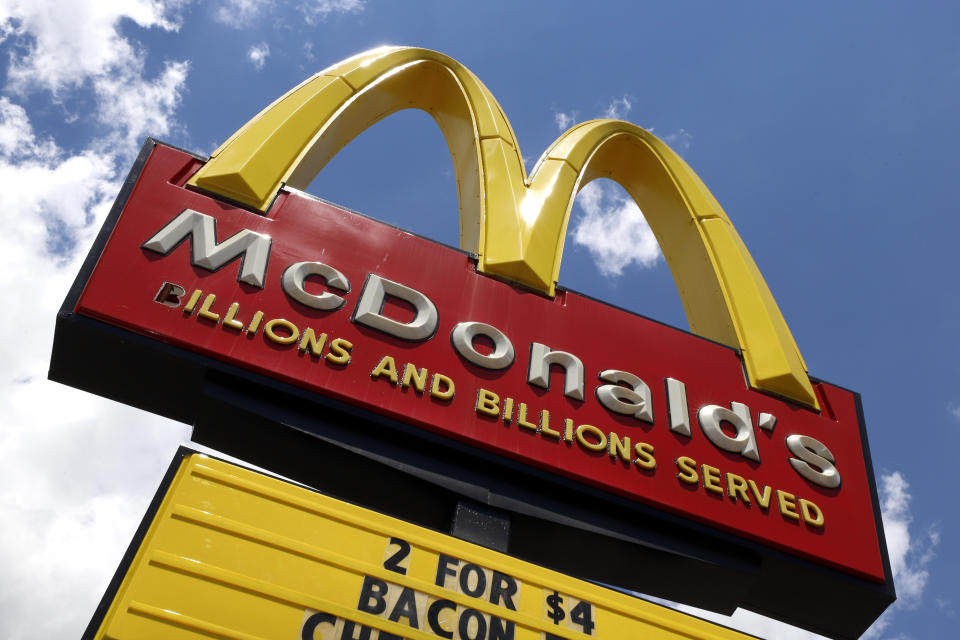Democrats are attacking the wrong companies
Amazon and Walmart are cutthroat competitors. But they share one important thing: Both companies have been miscast as corporate villains by Democratic presidential candidates trying to score easy outrage points with voters.
Elizabeth Warren castigates Amazon (AMZN) for being too big, buying up rivals and forcing down prices. Bernie Sanders bashes Walmart (WMT) for underpaying workers. Other Democratic targets include Facebook, Google, McDonald’s, General Motors, JPMorgan Chase, and the entire pharmaceutical and health insurance industries.

Well-known corporate titans might seem like easy targets, but there are many companies that behave worse than the ones politicians normally go after. In fact, the most commonly criticized companies rank relatively high in analysis of corporate behavior by Just Capital, a nonprofit that evaluates 900 of the biggest U.S. companies on pay, benefits, work environment, job creation, and more than two dozen other criteria associated with upstanding corporate citizenship.
The top five companies in Just Capital’s rankings are Microsoft, Intel, Google parent Alphabet, Texas Instruments, and IBM. Amazon ranks 30th out of 890 companies—and first in the retail industry, ahead of eBay.

Facebook (FB)—perhaps the most unpopular company with politicians at the moment—ranks 35th overall, and second in the internet industry. The social-media giant ranks second to last—889th—on protecting customer privacy, reflecting well-known controversies regarding the use and abuse of customer data. But Facebook ranks first in its industry for treatment of workers and job creation, and third for environmental protection—all issues the Democratic politicians characterize as priorities.
Google parent Alphabet (GOOG, GOOGL)—which Warren and others fault for near-monopoly power—ranks first in the internet industry, ahead of Facebook. It gets top marks for treatment of customers, environmental responsibility, and community support—not exactly your father’s monopoly.
General Motors (GM), criticized for Ohio layoffs earlier this year, ranks 14th in the Just Capital list and first in the auto industry. JPMorgan Chase (JPM), blasted recently for tweets making light of a low bank balance, ranks 111th overall and third among 47 banks. Four health insurers—Humana, UnitedHealth, Cigna, and Anthem—earn Just Capital’s “industry leader” designation, as do seven pharmaceutical firms, including Merck, Eli Lilly, and Johnson & Johnson.
The case against Walmart is a bit stronger. Walmart ranks 142nd overall, 565th on its treatment of workers and 876th on pay. But firms in the retail industry rank low on pay in general, on account of intense competition, low profit margins and the relatively low skill levels required for in-store work. Walmart ranks much better on job creation (22nd overall), support for communities (35th) and environmental protection (47th), which puts its overall Just Capital rank in the top 20% of companies.
Low-scoring companies
McDonald’s (MCD) may be the most legitimate target for corporate reformers. Its overall Just Capital ranking is in the bottom 10%, where the organization doesn’t specify numerical scores. On pay, McDonald’s ranks 886th, fifth from the bottom. Its environmental score is in the middle of pack, at 417, and on overall job growth it ranks 299th.

Even so, there are dozens of companies that are better targets for critics of corporate greed than the ones politicians normally go after. On overall treatment of workers, the lowest Just Capital scores go to Dollar Tree, Dollar General, Flowers Foods, the Extended Stay lodging chain, and retailer Amerco.
Outside of the low-paying retail and hospitality industries, the five companies with the lowest worker scores are Watsco, a building materials firm, shoe company Skechers, chemical firm Platform Specialty Products, Tyson Foods, and supply company Cintas Corp.
The five companies with the worst environmental scores are transportation firm Kirby, chemical producers Mosaic, Chemours, and FMD, and oil and gas firm CNX. The lowest scores for treatment of customers go to Equifax, Fifth Third Bancorp, Marathon Petroleum, Western Union, and Wells Fargo.
An effective political attack, of course, must be targeted at a company people have heard of and have some reason to suspect of malfeasance. That’s why Amazon, Facebook, Google, and other intensely competitive firms get most of the hate from politicians. If you really wanted workers to get a better deal, however, it might make sense to focus on where they’re getting the worst treatment right now.
Rick Newman is the author of four books, including “Rebounders: How Winners Pivot from Setback to Success.” Follow him on Twitter: @rickjnewman
Confidential tip line: [email protected]. Encrypted communication available. Click here to get Rick’s stories by email.
Read more:
Biden’s health care plan is a potent weapon against Trump
The Democrats need better villains
Everybody running for president is rich
Elizabeth Warren’s best and worst economic ideas
Medicare for all won’t work. This might
Read the latest financial and business news from Yahoo Finance
Follow Yahoo Finance on Twitter, Facebook, Instagram, Flipboard, SmartNews, LinkedIn, YouTube, and reddit.
